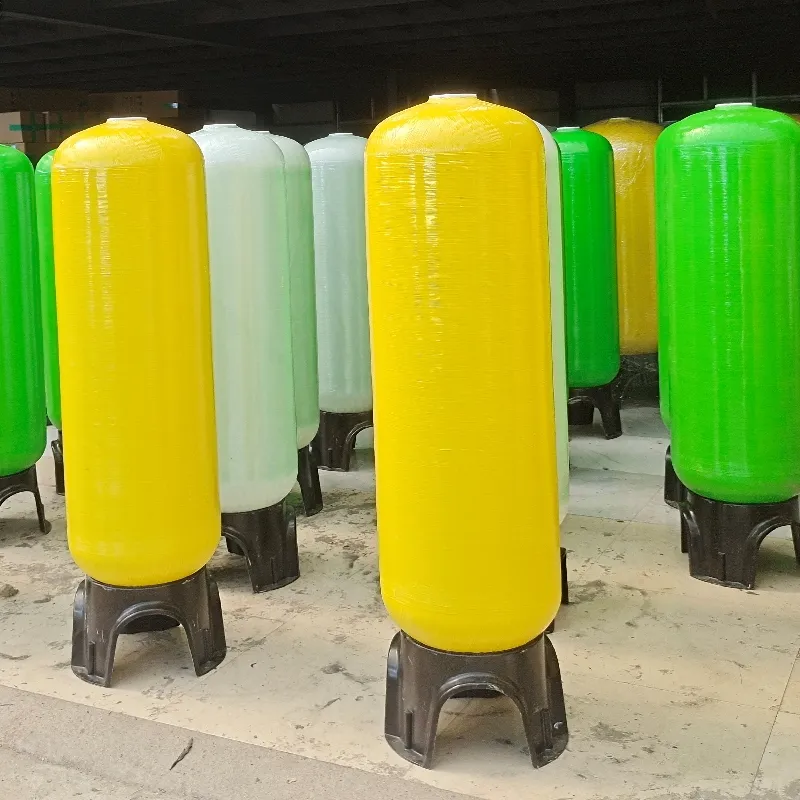loading...
- No. 9, Xingyuan South Street, Dongwaihuan Road, Zaoqiang County, Hengshui, Hebei, China
- admin@zjcomposites.com
- +86 15097380338
- Welcome to visit our website!
fiberglass water storage tank
The Advantages of Fiberglass Water Storage Tanks
In modern society, water storage is a critical concern for both residential and commercial applications. As communities grow and the demand for clean, safe water increases, the choice of storage solutions becomes paramount. Among various options available, fiberglass water storage tanks have emerged as a popular choice due to their numerous advantages.
Durability and Strength
One of the standout features of fiberglass water storage tanks is their exceptional durability. Made from fiberglass-reinforced plastic, these tanks are resistant to corrosion, which is a common issue with traditional metal tanks. Unlike steel, fiberglass does not rust or corrode when exposed to water or other environmental elements. This resistance not only extends the lifespan of the tanks but also helps in maintaining the quality of the stored water over time.
Lightweight and Easy to Install
Fiberglass tanks are notably lightweight compared to their concrete or metal counterparts. This characteristic makes transportation and installation significantly easier and more cost-effective. Hard-to-reach locations, such as rooftops or uneven terrain, become more accessible with fiberglass tanks. Their lightweight nature reduces the structural load on supporting infrastructure, making them an ideal solution for various sites.
Insulation Properties
Another compelling advantage of fiberglass water storage tanks is their insulation properties. They are designed to minimize temperature fluctuations, which is crucial for maintaining the quality of the stored water. Whether used for drinking water, irrigation, or industrial processes, maintaining a consistent water temperature can prevent contamination or unwanted biological growth. Fiberglass tanks can effectively keep the water cool in hot climates, thus ensuring its freshness and safety.
fiberglass water storage tank

Customization Options
Fiberglass tanks are available in a variety of shapes, sizes, and colors, making them highly customizable to fit specific needs. Whether you require a small tank for residential use or a large tank for agricultural or industrial applications, fiberglass can be tailored to meet those demands. This versatility allows for a seamless integration into existing infrastructure and landscapes.
Environmental Considerations
In today’s eco-conscious market, sustainability is a key factor in choosing water storage solutions. Fiberglass tanks are manufactured using materials that can be recycled, making them an environmentally friendly option. Additionally, their longevity and resistance to environmental wear mean fewer replacements and less waste over time, contributing to a reduced carbon footprint.
Cost-Effectiveness
While the initial investment for a fiberglass water storage tank may be higher than some traditional options, the long-term benefits often outweigh these costs. Reduced maintenance, extended lifespan, and energy savings from insulation qualities all combine to create a more cost-effective solution in the long run. Moreover, the tanks’ resilience can prevent costly leaks and repairs that are often associated with older, less durable materials.
Conclusion
In conclusion, fiberglass water storage tanks offer a multitude of benefits that make them an excellent choice for various storage needs. Their durability, lightweight nature, insulation properties, and customization options make them versatile solutions for homes, farms, and industries alike. As communities continue to prioritize water quality and sustainability, fiberglass tanks stand out as a modern, effective, and eco-friendly storage solution. Investing in a fiberglass water storage tank not only secures water resources efficiently but also contributes to a sustainable future.
-
The Rise of FRP Profiles: Strong, Lightweight, and Built to LastNewsJul.14,2025
-
SMC Panel Tanks: A Modern Water Storage Solution for All EnvironmentsNewsJul.14,2025
-
GRP Grating: A Modern Solution for Safe and Durable Access SystemsNewsJul.14,2025
-
Galvanized Steel Water Tanks: Durable, Reliable, and Ready for UseNewsJul.14,2025
-
FRP Mini Mesh Grating: The Safer, Smarter Flooring SolutionNewsJul.14,2025
-
Exploring FRP Vessels: Durable Solutions for Modern Fluid HandlingNewsJul.14,2025
-
GRP Structures: The Future of Lightweight, High-Performance EngineeringNewsJun.20,2025
